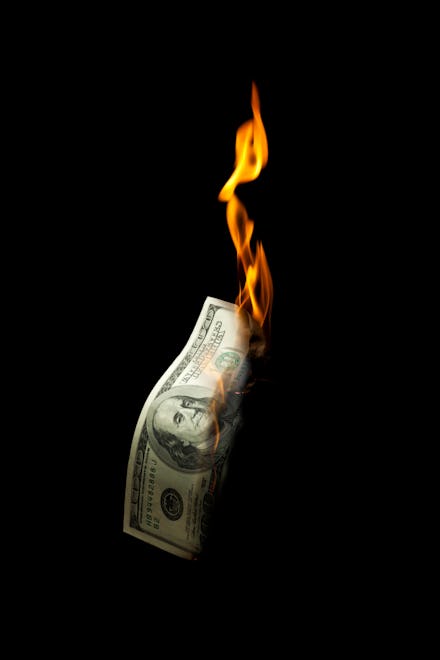There's More 'Dark Money' Than Ever in This Year's Elections, and It's a Huge Problem

The upcoming midterm election is on track to be the most expensive midterm cycle in American history, estimated to clock in at close to $4 billion.
Most casual observers might shrug at this figure — there's a resigned expectation that every election will be more expensive than the last.
But this year stands out: We don't know where an increasingly large share of this money is coming from, thanks to recently gutted campaign finance regulation. A number of recent reports reveal the growth of a new class of faceless donors who are casting a large shadow on the public square.
The era of dark money: The Federal Election Commission administers and enforces rules that limit the sources and amounts of contributions used to finance elections and requires public disclosure of campaign finance information.
But in the aftermath of recent changes to campaign finance regulations, select nonprofits can raise unlimited funds to influence political races without disclosing the identity of their donors. This "dark money" is pouring into political campaigns at an unprecedented rate.
The amount of dark money spent this year has already surpassed $100 million, and the Center for Responsive Politics estimates that figure will at least double by Election Day.
While Democrats certainly have a cozy relationship with outside spending from super PACs — political action committees face no spending limits in independently advocating on behalf a candidate but must disclose donors — they are significantly less likely to benefit from dark money than Republicans. The Brennan Center report found 32% of outside spending in favor of Democrats came from dark-money groups, compared with 80% for Republicans.
Another new development is candidate-specific organizations with dark-money coffers. Three quarters of the highest-spending single-candidate groups in this year's competitive Senate races hide some or all of their donors, most of whom are "double-dipping donors" — individuals who have already hit the legal limit for direct contributions to a campaign.
How did this happen? Campaign finance underwent a major overhaul in the 1970s in the wake of the Watergate scandal. A new framework was established to limit spending, boost transparency and restore the faith of the public in government accountability through measures like publicly financing presidential elections.
But as Evan Osnos discusses in the New Yorker, Supreme Court decisions have been chipping away at this regulatory regime since 1976 (and the option for a presidential candidate to have a campaign publicly funded has become obsolete in light of today's financial arms races).
The most dramatic blow to this was the Supreme Court's 2010 Citizens United decision, getting rid of limits on how much corporations, unions and individuals could contribute to independent efforts to sway an election.
The nightmare scenario that most critics of the decision envisioned was a massive spike in the amount of cash flowing directly from large, for-profit corporations into elections. Instead, we've seen the birth of a new breed of mediating organizations that simultaneously consolidate and mask the intention of wealthy donors through completely untraceable nonprofit donations.
It's worth noting though that the worrying new intervention of outside money doesn't guarantee that the odds of a race can simply be flipped. Consider the example of the North Carolina Senate race, which has seen the largest influx of outside spending this cycle. Over $67 million has been spent by PACs, super PACs and nonprofits, with over $8 million spent in just the last week. Outside groups favorable to Democrat Kay Hagan have been outspent by a factor of 2-to-1 by groups favorable to her opponent, Republican challenger Thom Tillis. Despite this, Hagan has a strong chance of retaining her seat.
What kind of democracy does money buy? Justice Ruth Bader Ginsburg said if there's one decision made by the current Supreme Court she would overrule, it would be Citizens United.
"I think the notion that we have all the democracy that money can buy strays so far from what our democracy is supposed to be," she said of the case.
She's right. The midterms this year might not be the most exciting, insofar as its outcome will almost certainly not alter the frustrating dynamics of gridlock in Washington, but we are witnessing a potentially far more serious degradation of the democratic process, in which the electoral process is becoming the expression of an increasingly well-concealed class of affluent investors. That should concern anyone who cares about the integrity of our democracy.
This post has been updates.